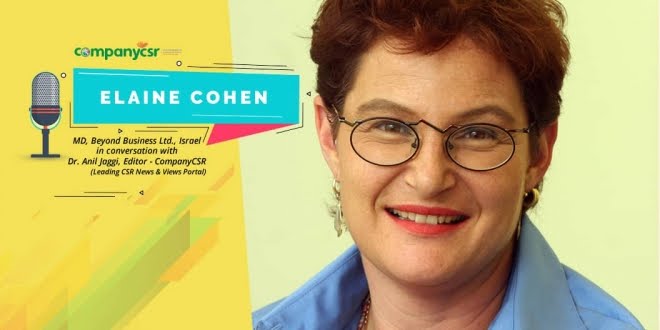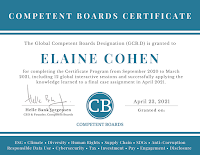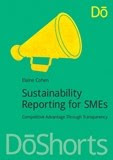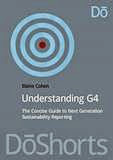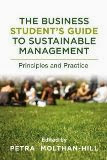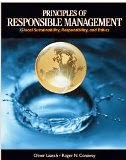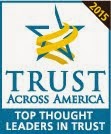ArcelorMittal is the world’s leading steel and mining company, with 100 million tonnes of annual production capacity and 260,000 employees across 60 countries and annual sales of $78 billion. I tried to imagine what 100 million tonnes of steel looks like. But I scored a blank. All I know is that 100 million tons of ice cream would look a whole lot nicer :). But I do have an idea of what 2,000 tonnes look like - yes, you guessed it - the ArcelorMittal Orbit.
The ArcelorMittal Orbit is a sculpture and public viewing platform was designed by Anish Kapoor and Cecil Balmond. It is 114.5 meters tall, and is the UK’s tallest sculpture, 22 meters taller than the Statue of Liberty. The Orbit is planned to become a new visitor attraction with views of up to 20 miles, encompassing the entire Olympic Park and London’s skyline, and is now all spanking, shining new, waiting for the Games to start. Visitors will be able to take a trip up the structure in a lift and then walk down the spiral staircase of 455 steps. Read more about the Orbit and see more photos at the Orbit website.
ArcelorMittal is no stranger to Sustainability Reporting and produces an annual report of the Company's sustainability activities both at a global level and also at several of the company's locations around the world. Going with the tagline Safe Sustainable Steel, the ArcelorMittal's 2010 Sustainability Report is a 49 page GRI Level C+ report with external assurance. After the opening section which talks about strategy, business profile and core stakeholders, the report has four core sections which have become the template framework for the local reports around the world: Investing in People, Making Steel More Sustainable, Enriching our Communities and Transparent Governance.
In 2010, ArcelorMittal spent $347million in environmental technology modernization to support reducing carbon emissions, launched a new Human Rights policy and became the fifth steel company to be included in the Dow Jones Sustainability Index.
I counted 12 local reports for 2010, in addition to the global effort, and most are produced both in the local language and in English. While there is a common outline structure and some overlap of content, and an orange-tangerine color supporting the basic design of most reports, the local reports are independent and distinctive representations of local performance at impressively high quality. Of the local reports I could read (i.e. those in English), I noted a very clear set of personalities coming through.
I counted 12 local reports for 2010, in addition to the global effort, and most are produced both in the local language and in English. While there is a common outline structure and some overlap of content, and an orange-tangerine color supporting the basic design of most reports, the local reports are independent and distinctive representations of local performance at impressively high quality. Of the local reports I could read (i.e. those in English), I noted a very clear set of personalities coming through.
Argentina's report is called "Transforming Tomorrow" and is a GRI Level B Report of 80 pages with strong sections on employee health and community involvement and a feedback form at the end. It contains some interesting perspectives from local journalists, and a nice interview with the External Affairs Manager who says: "Making the Sustainability Report allows us to outline a new way of stakeholder engagement involving all the areas, working to identify common points of interest and setting goals for each of them."
Brazil's Report is called "Looking forward to Tomorrow's Steel" and is a 71 page GRI Level B report and contains interesting persepctives on the Brazilian steelmaking industry, details of an Organizational Climate Survey covering over 19,000 employees in the LATAM region, and a strong emphasis on employee health and safety. Biodiversity features strongly in this report, with interesting detail of how biodiversity is affected in all parts of the LATAM region managed through the Brazil subsidiary.
India's Report (covering 2009) is a 40 page, non-GRI first report for this country, and full of the Indian flavors and spices that make this report highly Indian, and truly distinctive. It doesn't follow the 2010 template structure, instead focusing on social impact and community engagement, providing detailed context about the poverty, lack of literacy and chronic health issues in the tribal communities where ArcelorMittal is active, and the nature of the company's efforts to alleviate these problems.
Mexico's Report is a 12 pager and somewhat more compact than the rest of the local issues, with no GRI framework, but it contains plenty of Mexican faces and some local flavor. It follows the four topic template with meticulous care: 2 pages per topic (one page on Governance).
Poland's Report is a 41 page report, the first for this subsidiary, not GRI, with some great photos and many quotations from local Managers. Its focus is the significant impact the Polish business of ArcelorMittal has on the local steel industry, as the largest steelmaker in Poland.
The South African Report, entitled "Bold Spirit" is the only report which is not a standalone, and is included in the 216 page Annual Report for ArcelorMittal in South Africa. It includes a GRI Index for the sustainability content but no application level. It does not follow the sustainability report template and is less attractive as a sustainability report, but it includes a great section on the role of steel in society and description of the different impacts.
The USA Report is a 23 pager, not GRI, and follows the global template quite closely, with a clean design and short case studies interspersed with the narrattive. It includes a nice section of Key Performance Indicators and progress made against these to date.
It is quite impressive that ArcelorMittal has so much to say in key countries of operation and makes the effort to deliver meaningful report to all local stakeholders. Despite the different lengths, frameworks and approaches of ArcelorMittal local company reports, the local reports are, in my view, highly relevant and highly valuable. What would be an improvement for future years accross all reports is a materiality analysis, and greater disclosure of the feedback of stakeholders and how this has been incorporated intho the ArcelorMittal sustainability strategy.
I asked Meera Pau Mehta, ArcelorMittal Corporate Responsibility Program Manager, who has responsibility for implementation of the Human Rights Policy and the development of the Corporate Responsibility Report, what the payoff is for ArcelorMittal in producing so many reports. She said, quite simply, "Accountability and driving performance".
Meera said that "The global report is led by the group corporate responsibility team. Local reports are compiled by the local Corporate Responsibility teams, with support from the corporate team. The Group report addresses global issues, and those that are relevant to our global stakeholder groups. To keep the Group report succinct, we cannot include all the topics that are important to different local stakeholder groups. This is where local reports really make a difference – they address the topics that are most important to local stakeholders, and in the local language."
Meera added: "I love the variety of my role: I can be working on topics ranging from human rights to reporting to supplier capacity building. I have a great opportunity to shape our response to these important topics. "
Hear more from Meera at the Smart Sustainability Reporting Conference on 15th May, where she will be talking about "Increasing transparency and driving performance: from global to local corporate responsibility reporting". I am looking forward to it! (If you haven't registered yet, contact me for a discount code!)
elaine cohen, CSR consultant, winning Sustainability Reporter, HR Professional, Ice Cream Addict. Author of CSR for HR: A necessary partnership for advancing responsible business practices Contact me via www.twitter.com/elainecohen on Twitter or via my business website www.b-yond.biz/en (BeyondBusiness, an inspired CSR consulting and Sustainability Reporting firm)








